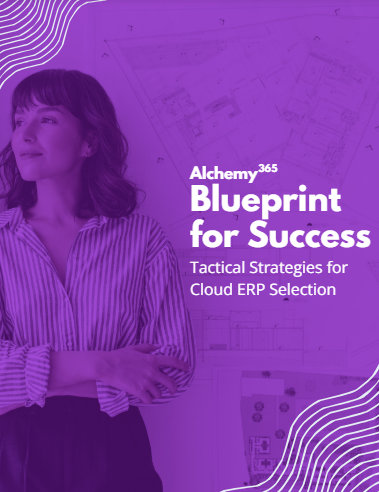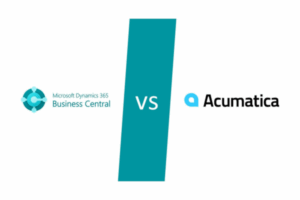1. Tackling Complicated Compliance (Without Losing Your Mind)
Compliance in the cannabis world can feel like a never-ending checklist. There are rules at the state level, and sometimes even stricter rules at the local level. You might have to report seed-to-sale data and watch every batch of product go through multiple inspections. For folks with multi-state operations, it’s like trying to track a thousand puzzle pieces with no picture on the box.
Picture a fictional example: Alex is a CFO at a medium-sized cannabis cultivation company in California. Alex spends at least three hours a day updating spreadsheets and logging data on various sites to keep inspectors off his back. He often worries he’s missing something because each region has its own checklist.
A good cannabis ERP integrates with your state’s compliance systems, like Metrc, automatically. That means you don’t have to jump around multiple platforms hoping you did everything right. The ERP pulls the data for you, updates your inventory records, and flags any potential compliance issues before they turn into big problems.
2. Bringing All Your Data Under One Roof
Lots of cannabis companies keep their info scattered across different software platforms or scribbled in notepads. There’s one system for finances, another for inventory, and maybe a separate Google Sheet for your production schedule. Talk about chaos.
An ERP unites all these pieces into a single platform. You can see your production, track your sales, keep tabs on your financials, and watch your inventory levels in real time—without flipping between a dozen apps. This is a big deal for CFOs or CEOs who want a clear, quick overview of how the business is doing.
Real-life scenario (fictional story for illustration): Picture Lucy, who owns a multi-state dispensary chain. She used to have to call her store managers one by one to figure out which products were running low. Sometimes she got outdated numbers, so she’d order too much of one strain and not enough of another. That led to wasted product and annoyed customers. With a cannabis ERP, Lucy can open a dashboard and see product levels across all stores at a glance. No more frantic calling or guesswork.
3. Tracking Every Seed and Every Sale with Metrc Integration
Metrc is the track-and-trace system used by many states to keep tabs on every stage of cannabis production and sales. If you’re not staying on top of Metrc, it can lead to fines or even worse outcomes—like losing a license.
A quality cannabis ERP plugs right into Metrc, so you can automatically sync data like inventory changes, transfers, and final sales. That means no more double entries and no more math errors that could cost you big time. Plus, with an ERP that plays nicely with Metrc, you won’t be caught off guard when it’s time for an audit.
Fun fact: As of 2025, more states are expected to adopt or tighten their track-and-trace systems, making Metrc integration a must-have feature, not just a nice bonus. The faster you can adapt, the easier compliance becomes in the long run.
4. Getting a Grip on Inventory and Supply Chain
Ever watch a cooking show where the chef keeps yelling, “We’re out of tomatoes!” halfway through every challenge? That’s what it can feel like when you lose track of key inventory in a cannabis operation. When you’re not sure how much product you have, or when you have irregular shipping schedules, it creates delays and headaches.
An ERP built for cannabis helps you see exactly how many products are in stock, what’s being shipped where, and what might need a reorder soon. It even factors in things like harvest times for cultivators or testing timelines for manufacturers. With all this info in one place, you don’t get blind-sided by an unexpected shortage—or by a surplus that could go to waste.
A quick story: Carlos, a CEO at a cannabis processing plant, nearly lost a huge contract because a shipment went to the wrong location. By the time he realized the mistake, the buyer had gone elsewhere. With a cannabis ERP, shipping labels and orders sync automatically, so Carlos can avoid mix-ups and keep those contracts coming.
5. Let’s Talk Money: Financial Management and Tax Tracking
The money side of cannabis is tricky. Taxes can be higher than for other businesses, and laws like Section 280E severely limit the kinds of expenses cannabis companies can deduct. It’s easy to get tangled up in financial guesswork or misreport your costs.
A specialized ERP simplifies this by helping you track every transaction under the umbrella of cannabis regulations. It allows you to keep an eye on expenses, set up cost centers for different parts of your operation, and generate accurate financial statements when it’s time to deal with your accountant or the IRS.
We see this a lot at Alchemy 365—where CFOs just want a clear breakdown of how much it costs to grow, process, and sell each product,
…and the last thing they need is to sift through spreadsheets with missing numbers. A cannabis ERP can ease that pain by giving you automated reports that actually make sense in a heavily regulated industry.
6. Making Sense of Multi-State and Global Expansion
It’s no secret that the cannabis market is expanding. Some folks are moving beyond their home state or even looking to go international. This brings a whole new set of rules, taxes, labeling requirements—you name it.
An ERP set up for cannabis can handle multiple tax structures and compliance rules for different regions. You don’t need to have a separate system for each state, which means you can keep growing without doubling your headaches.
Hypothetical snapshot: Imagine Jamie, the CFO of a company that started with a small grow operation in Nevada but recently opened a dispensary in Arizona. Instead of messing with two completely different sets of books, Jamie pulls up one ERP dashboard. He can see how Nevada and Arizona are each performing, and he can plan out next month’s budget without having to shuffle through multiple software tools.
7. Saving Time and Lowering Stress for CFOs, Owners, and CEOs
CFOs, owners, and CEOs in the cannabis industry often have more on their plate than leaders in other fields. Why? Because the rules are always changing, and many banks still hesitate to work with cannabis businesses. So you end up spending extra time proving you’re legit, along with juggling operational demands.
A cannabis ERP cuts down on the manual data entry, compliance checks, and duplicative tasks. That means you and your team get more of your day back. Instead of pouring hours into repetitive tasks, you can focus on big-picture stuff like expanding your product line or scouting new retail locations.
At Alchemy 365, we’ve seen how trimming even a few hours of busywork each week can free up CFOs and CEOs to make smarter, faster decisions. And that, in turn, can boost your business in a market that’s on track to keep growing.
8. Keeping Up with the Future of Cannabis
Technology in the cannabis space is moving fast. As more states legalize and more money pours into the industry, there will be new tools, data analytics, and AI-driven innovations. You need a system that can grow and adapt with you.
A modern cannabis ERP isn’t just about today’s needs. It’s also about tomorrow’s possibilities. When you have one central place for all your business data, it’s easier to plug in new apps and features down the road. You can add advanced analytics, connect with new compliance APIs, or even dabble in AI to predict upcoming market trends.
Fun stat: According to a Grand View Research report, the global legal marijuana market is expected to grow at a compound annual rate of 25.3% from 2022 to 2030. That’s huge. And it means staying flexible is the name of the game.
Wrapping It All Up
Running a cannabis business in 2025 is no joke. With new laws popping up, evolving market demand, and intense competition, you need more than just gut instinct to stay ahead. A cannabis ERP ties everything together—from compliance and Metrc integration to inventory, finances, and beyond.
If you’re tired of the stress that comes from chasing down data in 15 different places, or if you’re nervous about what happens if you slip up on just one compliance rule, consider how an ERP could change your day-to-day operations.
We’re Alchemy 365, and we’ve helped a bunch of cannabis entrepreneurs navigate these exact challenges. But this post isn’t just about us. It’s about helping you see that there’s a path to less stress, better tracking, and clearer financial insights in a booming—but sometimes chaotic—industry.
Here’s the payoff: By investing in a cannabis ERP, you’ll have a safer, more efficient, and more confident operation. You’ll also set yourself up for long-term success as the industry continues to expand into new markets and products. That’s a win in our book.
If you’re looking for ways to bring calm to the storm and move your cannabis business into the future, an ERP built for cannabis might be the missing piece. You deserve to focus on what you do best—running a great company and delivering awesome products—without drowning in compliance nightmares or messy spreadsheets.





